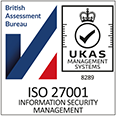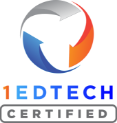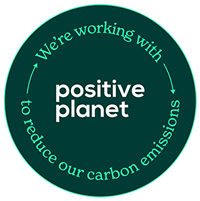Simon Riley, Professor of Experiential Student Learning from University of Edinburgh on ‘Reflective experiential learning and student-led co-created courses (SLICCs) for student success at scale.’ This recording is from our 2023 MiniBash community event which was hosted in Birmingham, England. Videos are for educational personnel only and require a live educational email to watch. You can read a small snippet of the video transcript below.
–START TRANSCRIPT–
It’s bigger than a little bash, isn’t it? So yeah, thank you very much for the invitation.
I’m going to talk to you a little bit about SLICCs, and the acronym is a little bit marmite in my institution. We’ve been using it for seven years, but all it really is, is an experiential, reflective, learning, and assessment framework using a portfolio.
So, hold that in your heads. And I’ve got a couple of different roles. Our institution’s just developing what’s called Edmond Futures Institute, which is a pretty big investment to try and create some into disciplinary space. But my background is as a bioscientist and student selected components in the medical curriculum. So, I’ve kind of gone across a fair spectrum of learning across the institution.
And we’re all putting this drivers sort of slide up. But I’m not going to read everything through because there are some things I want to talk about in more detail. But I think the drivers for us around this initiative were starting to emerge around employability.
One of the interesting resonating ways of being able to embed that was putting our graduate attributes out there, splitting them up and putting them into the course documentation.
And in that process, you can then say to the course organisers, well you know, you’re saying that your students are achieving that graduate attribute, how are you showing that? So, all of a sudden, there was a little bit of leverage in how you could make those graduate attributes really emerge on a more granular level within each of the individual courses within a program.
And that’s been one element, but we are now in a massive curriculum transformation phase. You know, relatively early in it, but it’s going to be heading towards a decade project, with how long these things and people take.
And I think we also need to scale these things. But I think the other thing that resonates with my colleagues when I stand in front of an audience and you know I’m preaching to the converted here, but it’s to say where is your major learning been? And quite often, it’s when you make a mistake and learning from it. And quite often, that’s contrary to every other assessment paradigm that we use. So you make a mistake and get a rubbish mark. And the students are really low risk around assessment.
So how is it and how can you create a framework by which a student can learn from a mistake, reflect upon it and say, okay, I did this. I should have done it this way, and this would have given me this.
And if you do that, then you can start to enable them to get good marks. So again, another resonance. The other way I’d like us to look at our learning environments is to go beyond what we’re talking about around the syllabus and the curriculum. There’s a lot more out there and some people call it her hidden curriculum.
–END TRANSCRIPT–







